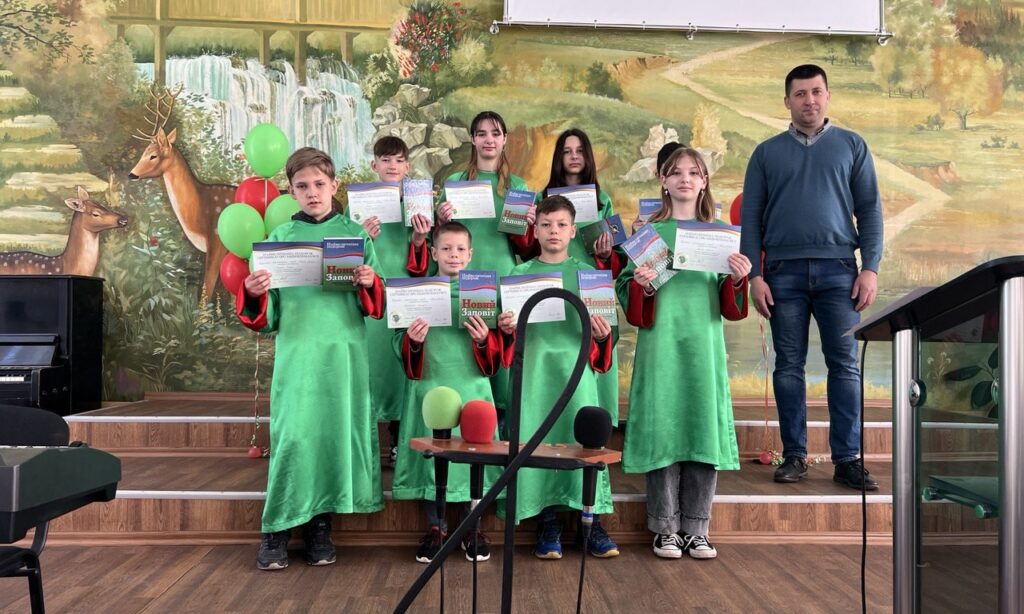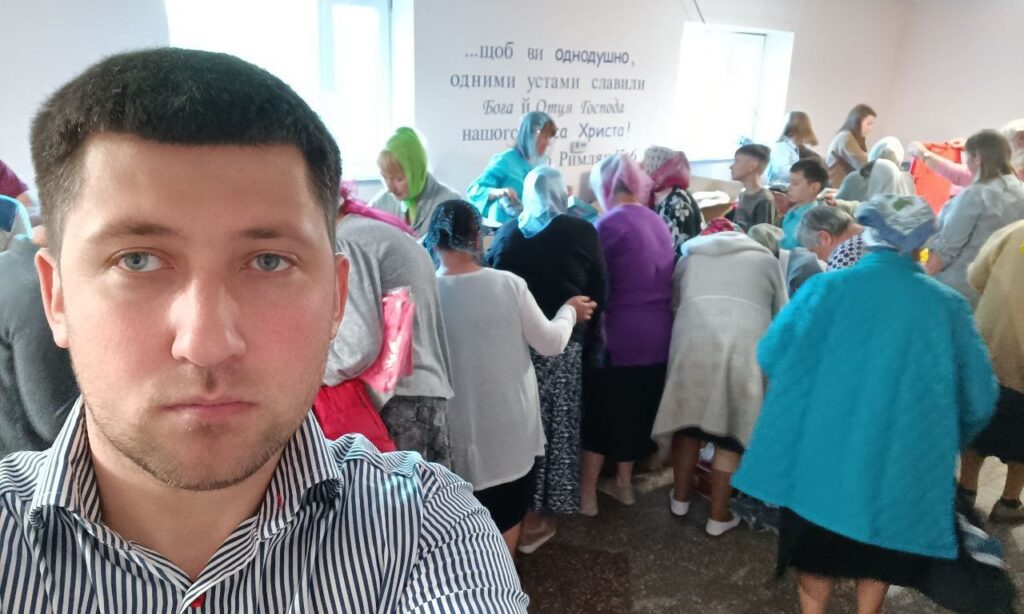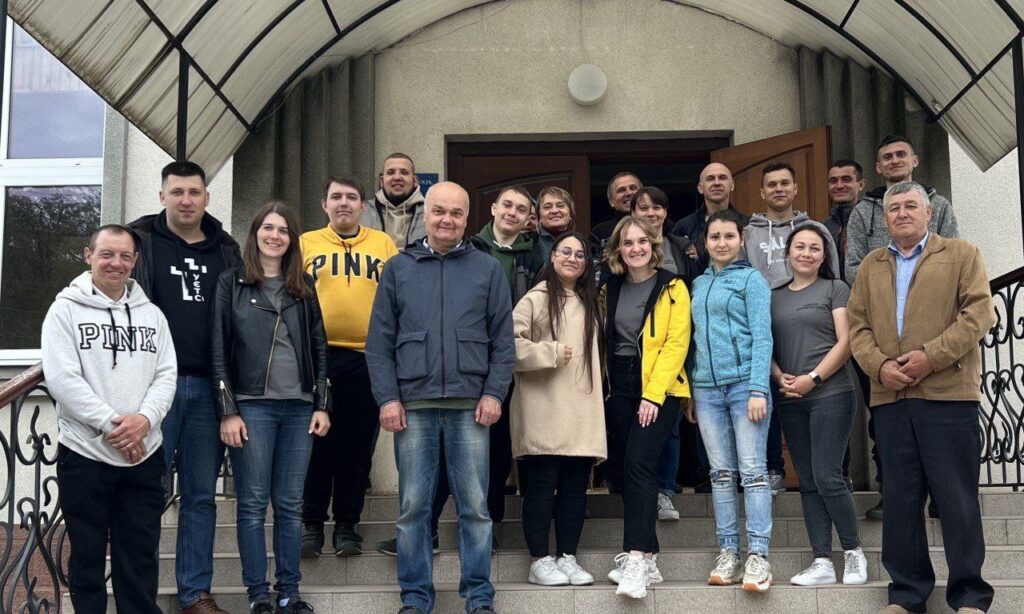


‘My Studies at UETS Have Made Me More Organized, Mission-Oriented and Purpose-Driven.’
Interview with Andriy Potapchuk, a fourth-year student of theology and pastor of the Ukrainian Christian Church in Cherkasy.
Can you share a little bit about yourself?
I am originally from Kovel, Volyn’ oblast. But since 2016, I have been living in the Cherkasy oblast, Central Ukraine. Currently, I am a pastor of the Ukrainian Christian Church in Ruska Poliana, which is 10 kilometers from the city of Cherkasy.
How did you happen to become a pastor?
I was born into a Christian family. I can say that I have been feeling an inner calling from God to become a minister from a very young age. I even started preaching when I was 12.
Later, I became fond of reading books about missionaries which inspired me. Also, I joined different teams from my church on numerous missionary trips all around Ukraine. Once we even embarked on a trip to Russia.
After I moved to Cherkasy, I had different roles at several churches. I used to be a deacon, worship team member, youth leader, preacher, assistant pastor. I was also involved in church-planting. After the war broke out, a senior pastor asked me to move to the village of Ruska Poliana and assume the responsibility for the local church there.
What impact would you like your ministry to have?
One of my deepest desires is to take our evangelical church to a new level in terms of its incarnational presence in its community so that it can be integrated in its life physically, socially and physically.
The vision of our church is For people. With people. Among people. “For people” means that we are open to new people, we work, and preach the Gospel for new people to come to know Christ. “Among people” implies we want to be a part of our village community serving its members. “With people” means that we want to be ready to meet personal, social and other challenges people are facing at the wartime.
For example, there is a social center at our church through which we help both Ukrainian military and civilians, in particular families with children, providing them with food products and other necessities. We understand that not all people will become believers but we want to plant and model Christian principles and values to impact our local community.
What changes have your vision and ministry undergone during the war?
The war has made us more mission-oriented. I started thinking about long-term attendees of our church who, instead of ministering with us hand-in-hand, were absorbing energy and resources that could be used to serve non-believers.
So, I began preaching about spiritual maturity and our responsibility for others living nearby so that they were able to see light and salt in us. In other words, I have become more mission-oriented whereas before I was driven primarily by internal problems of the church.
What challenges did you encounter in the process of organization of your ministry?
Previously, before enrolling in the seminary program, I critically lacked understanding of how to organize the life of the church. I was not good at communication with my congregation and my team. I lacked knowledge in the areas of church administration as well as personal spiritual development. I did not understand my role as a minister, my own responsibility as a leader.
Also, I was spontaneous… I did not consider planning to be important. This, of course, did not do anything good to my ministry. There were some financial problems too… Plus ignorance of the needs of my family which was suffering because the ministry was taking all my time and energy.
What also prevented me from doing my ministry more effectively was the gradation of important and unimportant things. I tended to concentrate only on important matters I did not have any resources for and ignored minor matters I had resources to resolve.
Another challenge I encountered in the organization of my ministry was the lack of spiritual mentorship. That led to mistakes in my ministry I would not have made if I had had people who could help by giving good advice before. As a matter of fact, I was raised in an environment in which to ask someone for help was considered to be a shame and weakness. Today, I have a spiritual mentor which is very helpful.
In what way has studying at UETS influenced you and your ministry?
As I mentioned before, I had problems in communications and management… I had a rather obscure and primitive understanding of those things, mere basics. But when we covered those things at UETS – church administration, team work – my knowledge and skills became profound and practical.
I even started conducting seminars for my team, changed my communication with ministry leaders, in particular those responsible for the Sunday School, youth ministry, women ministry and other ministries at our church.
Before, I did not have any problems delegating and assigning… On the other hand, I often delegated too much to others, being detached from what they were doing. Leaders might have even thought that I was not interested in their ministry. So, I started communicating with them at another level asking how I could be helpful to them and their ministry…
My studies at UETS have made me more organized, mission-oriented and purpose-driven, and changed my communication with my team… My approach to ministry became more practical. My preaching changed too. Through a series of thematic sermons, I started preaching more practical and relevant things which have to do with the current life of the congregation.
Can you share how your ministry influenced other people?
Once, when I asked youth to share their testimonies of how their lives changed as a result of our ministry, one girl wrote that she had started reading the Bible and seeking God more. Later, she graduated from a missionary school and got actively involved in worship ministry, being helpful in other ministries too. The same, actually, refers to other young people who have joined different ministries. Some guys have already become preachers.


